MAINSPACE EXHIBITION /
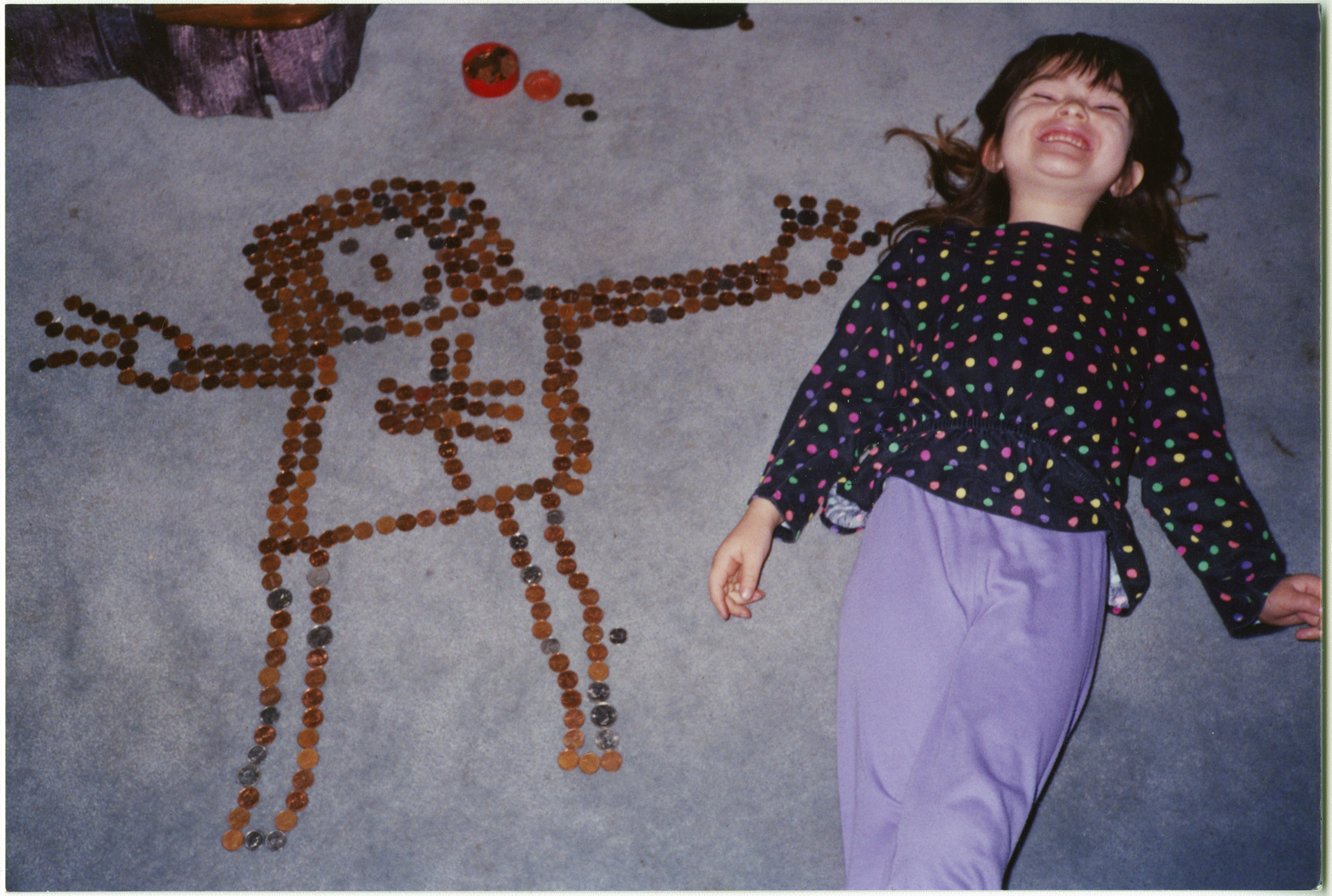
Image: Penny Sister by Nicole Kelly Westman
The Travelling Light
Jillian Fleck (Calgary, AB), Tomas Jonsson (Calgary, AB), Kegan McFadden (Winnipeg, MB), Ehryn Torrell (London, UK), and Nicole Kelly Westman (Banff, AB)
February 28 to April 5, 2014
Essay: A Shadow Cast in the Travelling Light
The Travelling Light is an exhibition that seeks to understand the effects of political and bureaucratic machinations in and upon one’s personal life. Here, the artists reflect on inherited economies and examine the administrative detritus that gradually accumulates and marks the passage of time, the loss of love, and the dissolution of dreams. Together, they ask, “What do we do with a world we did not make but cannot escape?”
Nicole Kelly Westman revisits a childhood past-time: as a younger woman, she frequently arranged her coin collection into the likeness of a sister. A photograph of her giddily presenting her efforts becomes bittersweet. I feel nostalgic when I see the violet couch curtains and velour sweatpants clouded by film grain, but I can’t help thinking about the “Penny Sister” as a copper idol, an early infiltration of capitalist worldviews into the mind of a young dreamer. But then there is the desire for a sister, a way to escape loneliness, a longing for money to soothe and save.
Tomas Jonsson’s work conflates his familiar history with specific events in the ongoing development of the city. He illustrates esoteric intersections: during a trip that was intended to be a cursory tour of Canada, his family stayed at a campground on St. George’s Island and relocated permanently to Calgary from Denmark. Years later, on an ancient roll of film left-over from his family’s initial excursion to Alberta, Tomas documented the Occupy Calgary movement and the resulting Tent City that sprang up on the island.
Furthermore, the Jonsson family home—where Tomas’s parents had lived for over 40 years—was recently scheduled for demolition in an endeavour to make way for new development projects. Aiding his mother with the moving-out process, he discovered that she had kept every receipt from every purchase over the last few decades. Carefully arranged by month in Number 10 envelopes, the bundles look like humble sarcophagi and I imagine the yellowed carbon paper as preservative dressings. Over the course of the exhibition, Tomas will be examining the financial remnants of his parents’ life: combing through them in a manner that is part-séance and part-audit.
Ehryn Torrell’s contribution excerpts the last sentence from her mother’s final written correspondence. In elegant handwriting on faint blue paper, she assures, “It really did help.” By reproducing this as a multiple on discontinued Air Mail stationary, Ehryn is subverting closed infrastructures—freely offering intimacy without exchange, giving the deepest part of herself bereft of desires for consolation or compensation. “Free-to-take” artist’s multiples have always defied capitalist expectations by proposing alternative economies, and Ehryn describes her project as “one of a series of works that pairs technological obsolescence alongside notions of human mortality.” She continues, “Most importantly, it is a work about gratitude.”
Kegan McFadden reflects on a different kind of loss: sweeping in its slowness, but no less personal. His research proffers, “In the mid-’80s there were 18 gay bars, baths, clubs, and restaurants in Calgary; today only three are still in operation.” Implicit in his work is the question, Are we becoming more progressive and accepting? Is there no longer a “need” for specific supportive spaces? I want to be hopeful, to think that not only tolerance, but also love, and a love for love, have been wholeheartedly received by contemporary society, but a recent article in the Calgary Sun detailing their readers’ confused response to the rainbow flag at City Hall only depresses me.
Finally, Jillian Fleck presents a small zine freely dispersed at the site of its discontent: the gallery and all of the infrastructure that purportedly exists in service of art. She articulates the same relentless doubts I have often felt. Juxtaposing excerpts from Calgary Arts Development’s heraldic Arts Plan against the idle banter of emerging artists at a vernissage, she dwells upon the differences between a municipality’s identity and its actuality, specifically drawing attention to disparate consensuses—finding emptiness in the spaces between words and that which they signify.
And so, I wonder. Recently, Calgary has been the site of much civic celebration. We completed a year as the Cultural Capital of Canada and dealt with a harrowing flood. We re-elected a progressive mayor. But what do we do now? What do we do while racism abounds and the environment disintegrates? What do we do while post-secondary budgets are curtailed and public art monuments are torn down? Sometimes it really gets to me. Sometimes I don’t feel like doing anything at all.
– Steven Cottingham
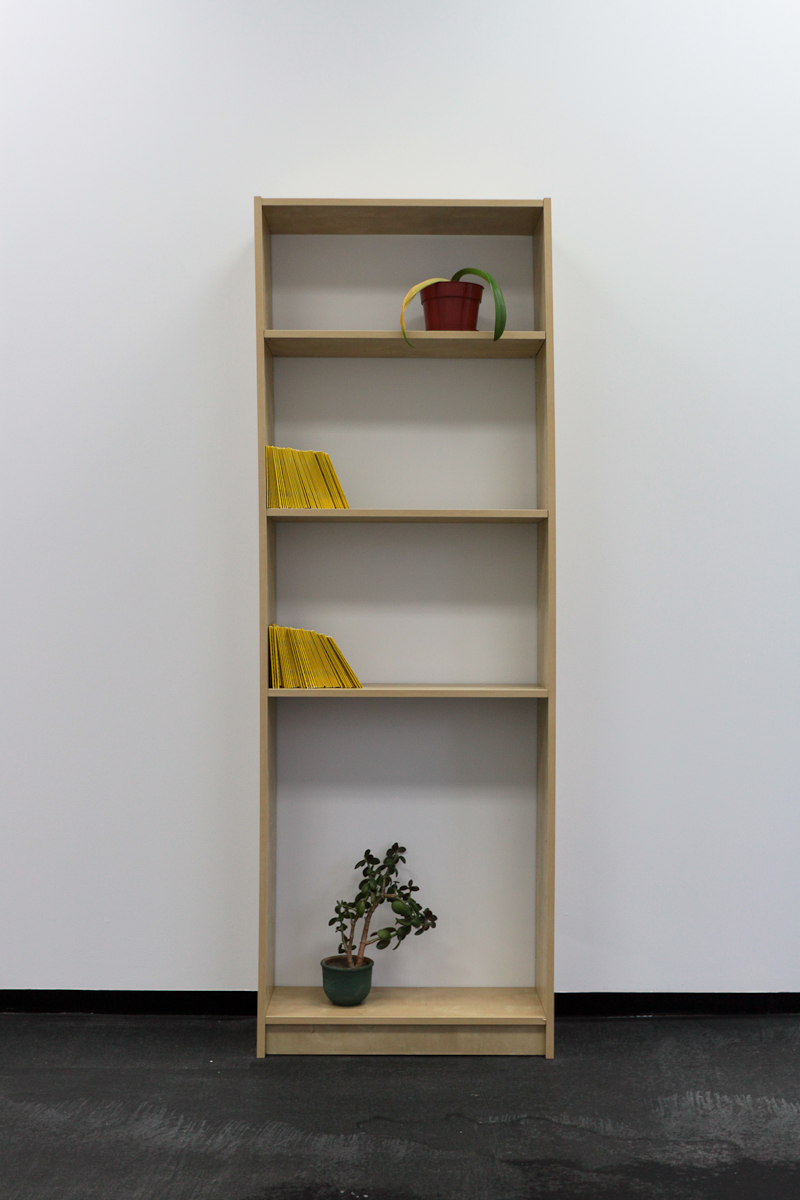

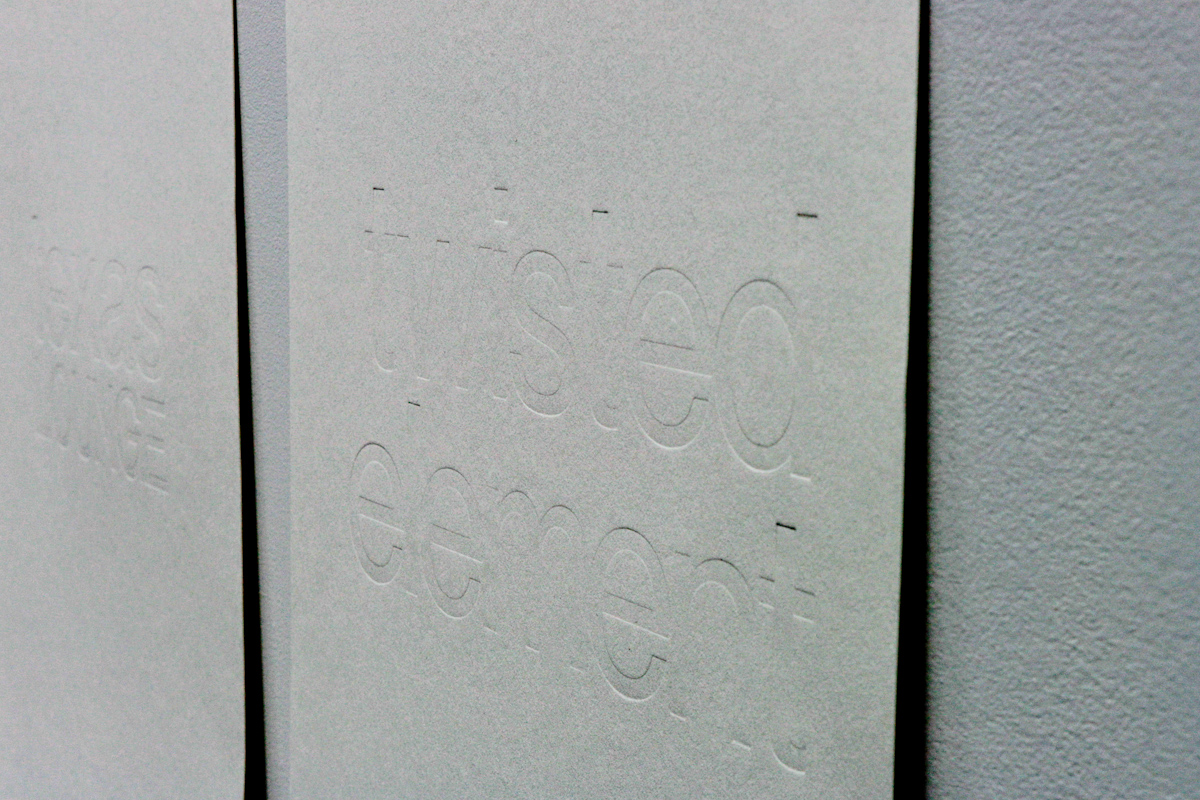
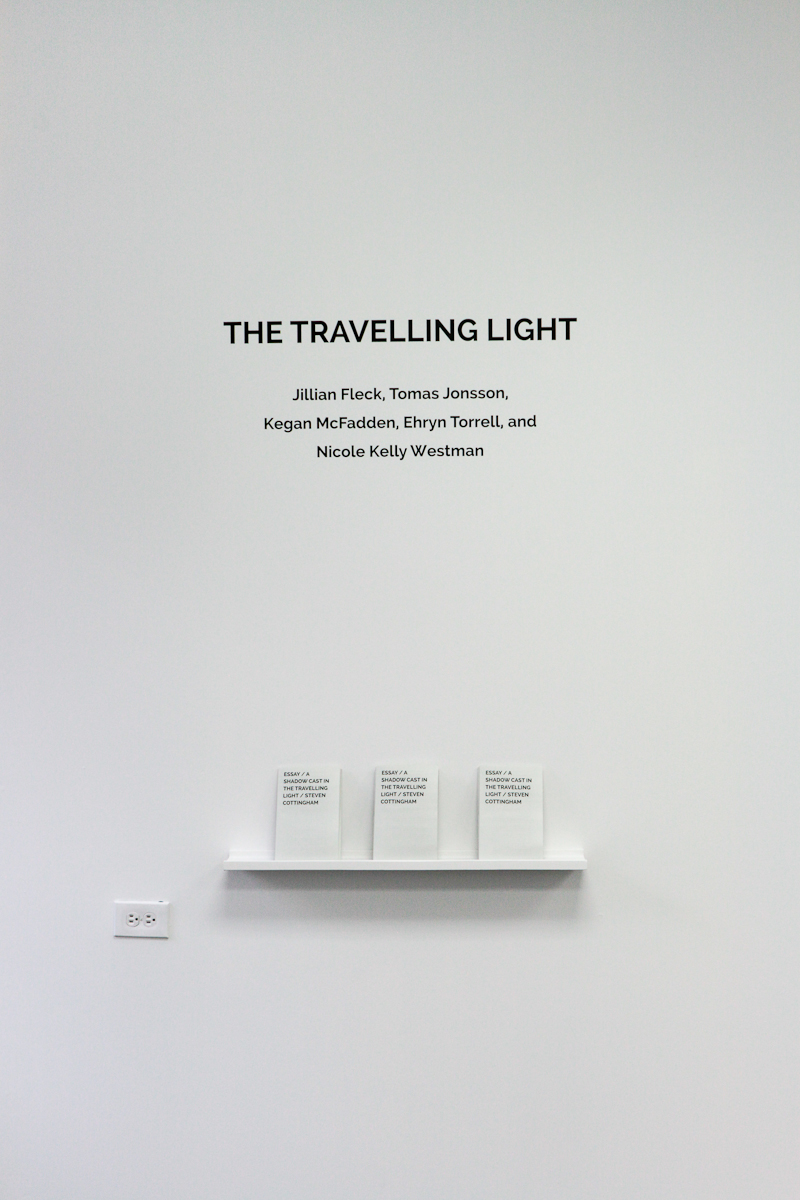




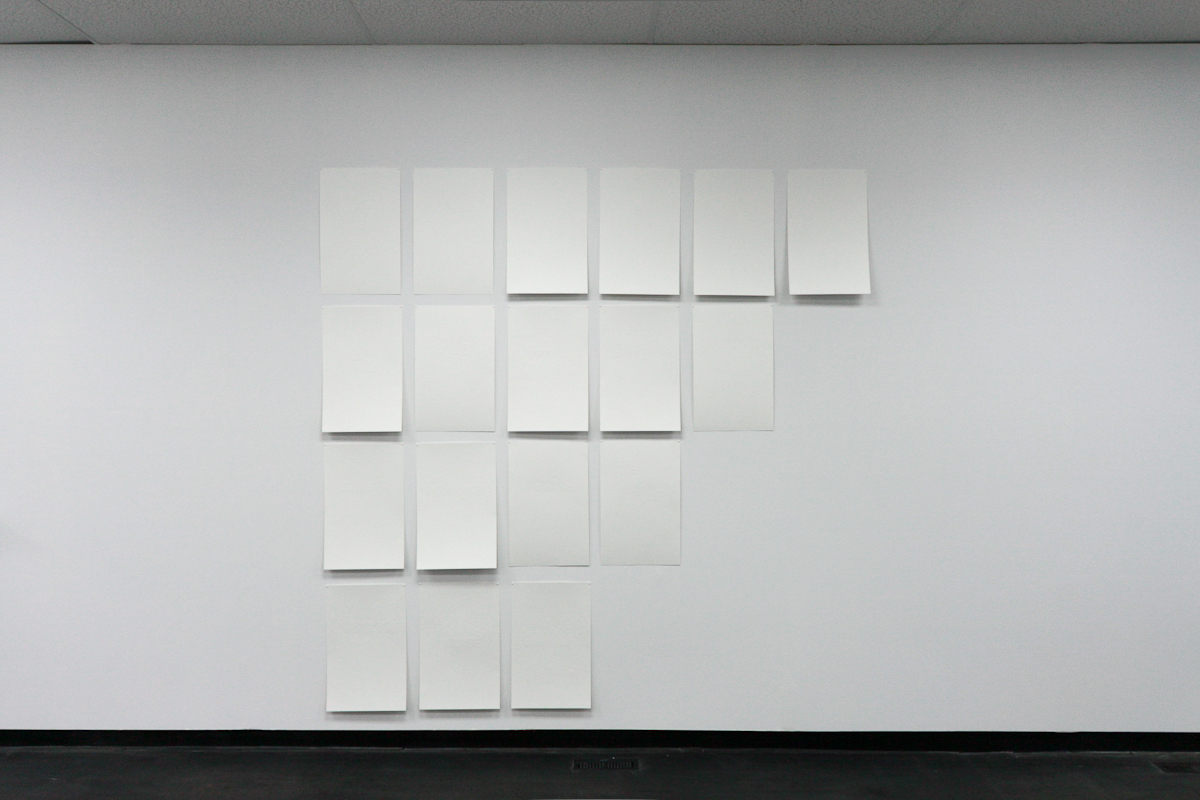

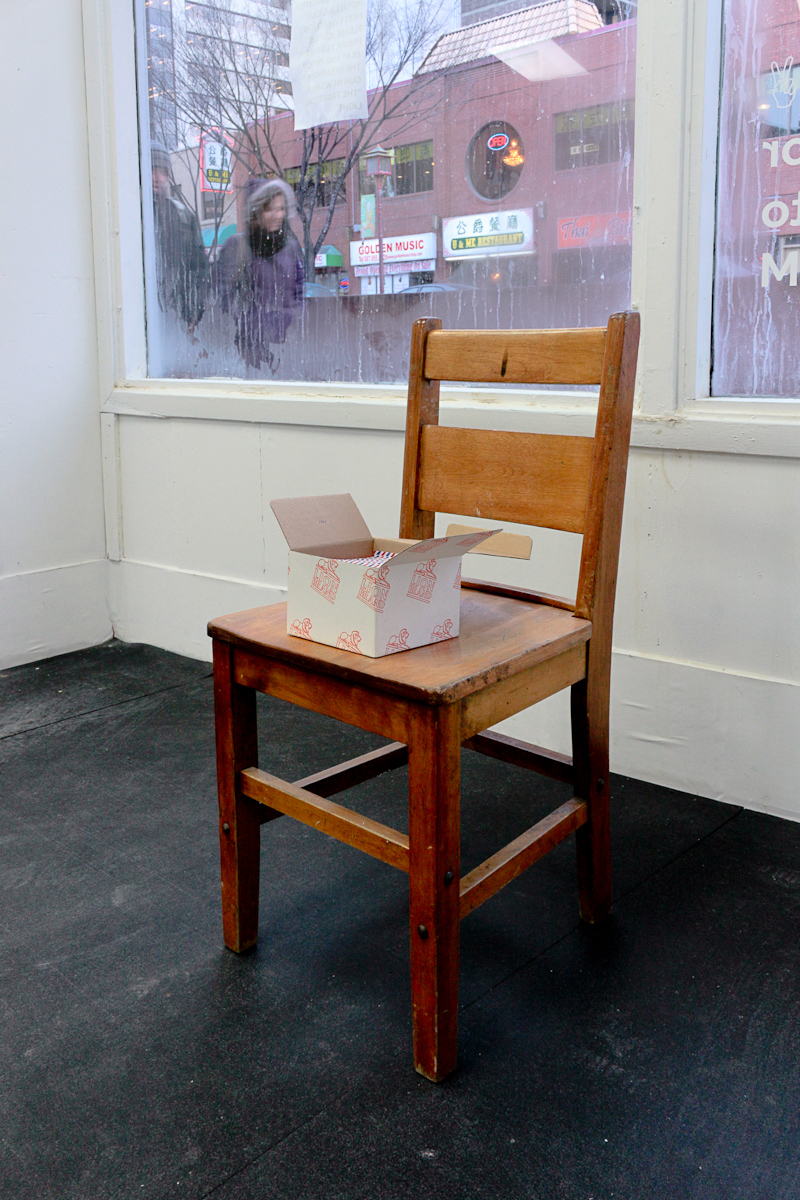
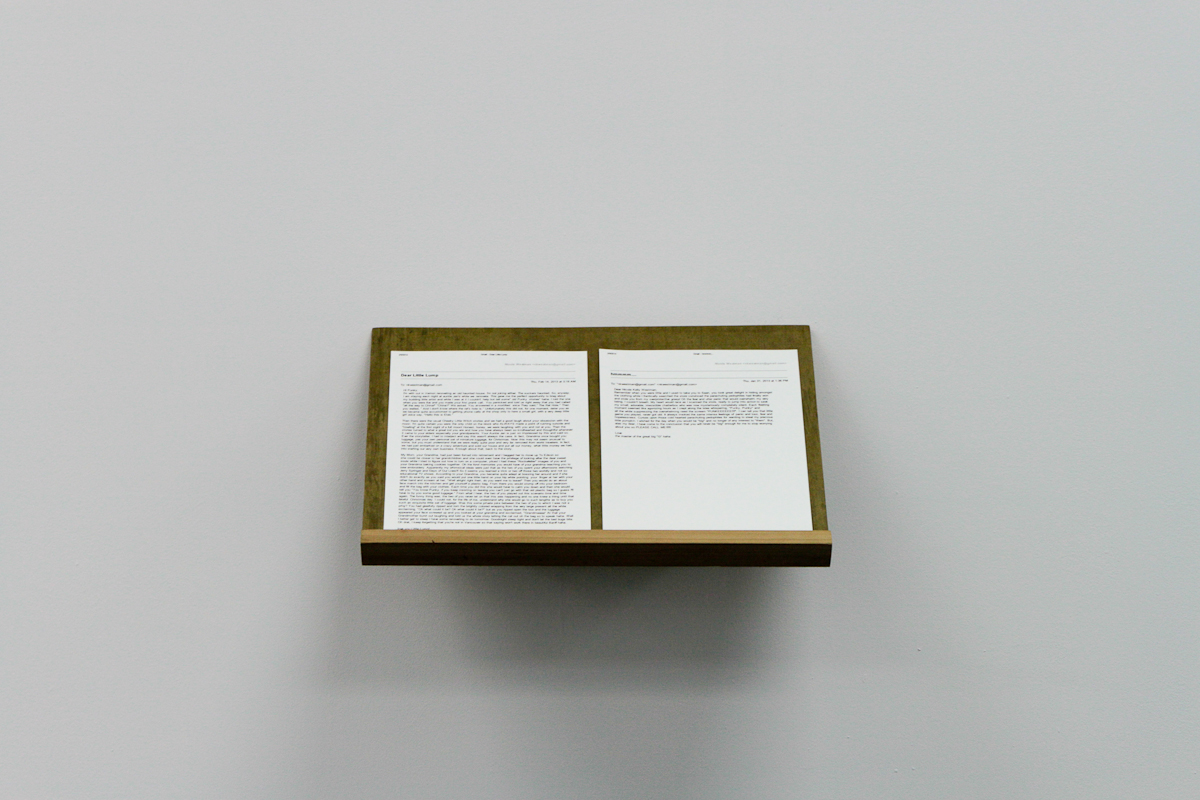

Biographies
Jillian Fleck is an artist from Calgary who graduated from the Alberta College of Art and Design in 2012. Her work is often described as being very funny and very sad, and has been published in a variety of independent anthologies across North America. At present she is focusing on a graphic novel and other short-form comic book projects.
Tomas Jonsson is an artist, curator, and writer interested in issues of social agency in processes of urban growth and transformation. Jonsson has produced several projects in Calgary addressing the city’s urban transformation, including sites such as The East Village and Hillhurst Sunnyside. He has also curated, presented, and performed work in Canada and internationally, including Artscape Gibraltar Point (Toronto), Suvilahti (Helsinki), and MoKS (Mooste, Estonia).
Tomas wishes to thank the following individuals for their support in realizing these works: Noel Begin, Shane Butler, Steven Cottingham, Sonia Edworthy Eina and Sven Jonsson, Christine Hayes, Rita McKeough, Ryan McClure Scott, karen elaine spencer, Victoria Stanton, Sharon Stevens, Jenna Swift, and Kyle Whitehead.
Kegan McFadden’s practice is informed by questions of memory—its function and implication—in socio-cultural contexts. His recent projects have dealt with memory, both individual and collective, using a mixture of conceptual strategies from research methods to appropriating materials and minimalist installation techniques. McFadden has exhibited in artist-run, public, and university galleries throughout Canada, including: Open Space (Victoria), Malaspina Printmakers Assoc. (Vancouver), Martha Street Studio (Winnipeg), Gallery 1C03 / University of Winnipeg, Trinity Square Video (Toronto), Gallery 44 (Toronto), Hamilton Artists Inc. (Hamilton), eyelevel gallery (Halifax), and The Rooms (Newfoundland). Based in Winnipeg, he is an active contributor to and proponent of artist-run culture.
Ehryn Torrell is a London-based Canadian visual artist who has exhibited throughout Canada and internationally since 2001. In 2013, she had solo exhibitions at Cape Breton University Art Gallery and the Grimsby Public Art Gallery, performed for Nocturne Halifax, and had work included in the Painting Project, a survey of contemporary Canadian painting curated by Julie Bélisle and Louise Déry at Galerie de L’UQAM in Montréal. In 2014, a catalogue to accompany Torrell’s major body of work, Self-Similar, will be co-published by The MacDonald Stewart Art Centre, St. Mary’s University Art Gallery and Cape Breton University Art Gallery. Torrell has received numerous awards for her work, including grants from the Canada Council for the Arts, The Ontario Arts Council, Patrick Hamilton Studio Award, and the prestigious Joseph Plaskett Foundation Award for painting. Torrell has travelled extensively for creative research and has attended numerous residencies including Fiskars AIR (Finland), Florence Trust (UK), LKV (Norway), and The Banff Centre (Canada).
Nicole Kelly Westman is a visual artist who grew up in a supportive home with strong-willed parents—her mother, a considerate woman with inventive creativity, and her father, an anonymous feminist. Her work culls from these formative years for insight and inspiration.
Steven Cottingham has worked as the Programming Coordinator at The New Gallery since 2012.
We produced a 29-page catalogue in conjunction with this exhibition. Available in our online store or as a free PDF.

